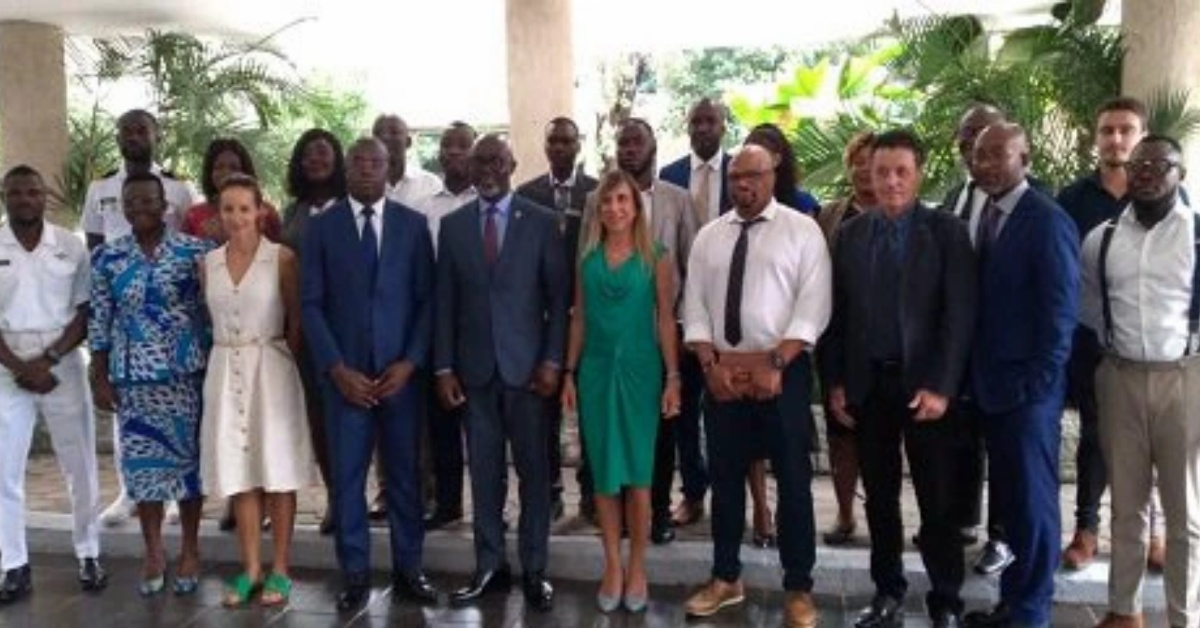Fourteen security officers from Sierra Leone and Ghana are undergoing five-day capacity training in Accra, to enhance their skills in maritime intelligence collection on suspected vessels.
The participants comprising five from Sierra Leone and nine from Ghana, were selected from the Marine police, Ghana Maritime Authority, Tema Port and the Navy.
The training, which was opened on Monday, is being organised by the Seaport Cooperation Programme (SEACOP) with funding from the European Union, seeks to educated participants on requisite knowledge in Maritime Trafficking.
The programme would strengthen the co-operation among maritime trafficking in countries on the trans-Atlantic cocaine route.
The Acting Director General of the Narcotics Control Commission, Mr Kenneth Adu-Amanfoh, said “maritime medium is one of the main ways by which drugs enter a country for onward distribution or for local consumption.”
He said West Africa had had its fair share, being continuously exploited as a transit point for the trafficking of cocaine from Latin America to Europe and North America.
Mr Adu-Amanfoh said according to the United Nations Office on Drugs and Crime (UNODC) 2021 World Report, “As commercial air travel decrease and land border controls increased in 2020 due to COVID-19, illicit drug trafficking on maritime and waterway routes accelerated in Europe, Latin America, North Africa and South-East Asia.”
He stated that the report recorded shipment of cocaine from 12 countries and quantities seized in seaport were up 18 per cent last year.
Mr Adu-Amanfoh said to address the situation, it was imperative that law enforcement officers were equipped with the requisite skills and knowledge in maritime intelligence systems, maritime trafficking methods and concealments.
“Officers should also be exposed to all forms of techniques in profiling merchant vessels and fishing boats,” he said.
Mr Akizi-Egnim Akala, Deputy Regional Coordinator for West Africa, Project SEACOP, said Africa was one of the most affected regions with regards to organised crime.
He said reports from the Organised Crime Index Africa 2020, indicated that West African countries appeared to have high ranking criminality scores and very low resilience score.
“Also, according to the World Bank, the criminal economy in Africa was estimated to over 3.3 trillion dollars by 2015 and exceeded by far the total Africa Gross Domestic Product (GDP), Mr Akala said.
In the last three years, 57 tonnes of cocaine have been seized in West Africa, but according to the UNODC the trafficking is five times more,” he said.
The Head of Governance and Security, EU Delegation, Ms Anna Lixi, said according to the UNODC, West Africa had faced a growing influx of drugs arriving from Latin America through the region’s ports and airports.
She said Ghana’s deep-water ports, for instance, has made the country an attractive logistics hub for drugs, adding that large amounts of these drugs were destined for European markets.
“This alarming situation makes illicit trafficking in narcotics a significant EU concern and preoccupation. The drugs trade not only helps fuel addiction, but also challenges police and prosecution. This is because the international narcotics trade goes hand-in-hand with money-laundering, corruption and in some cases the financing of terrorism. Here in West Africa, links already exist between the drugs trade and the financing of armed actors,” Ms Lizi said.











